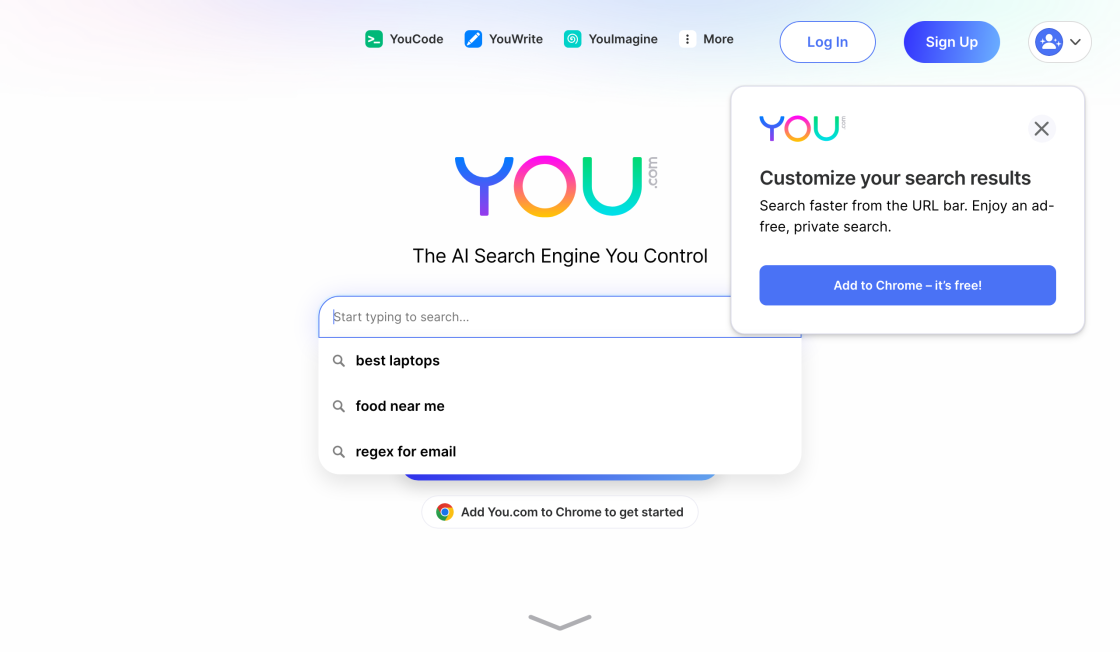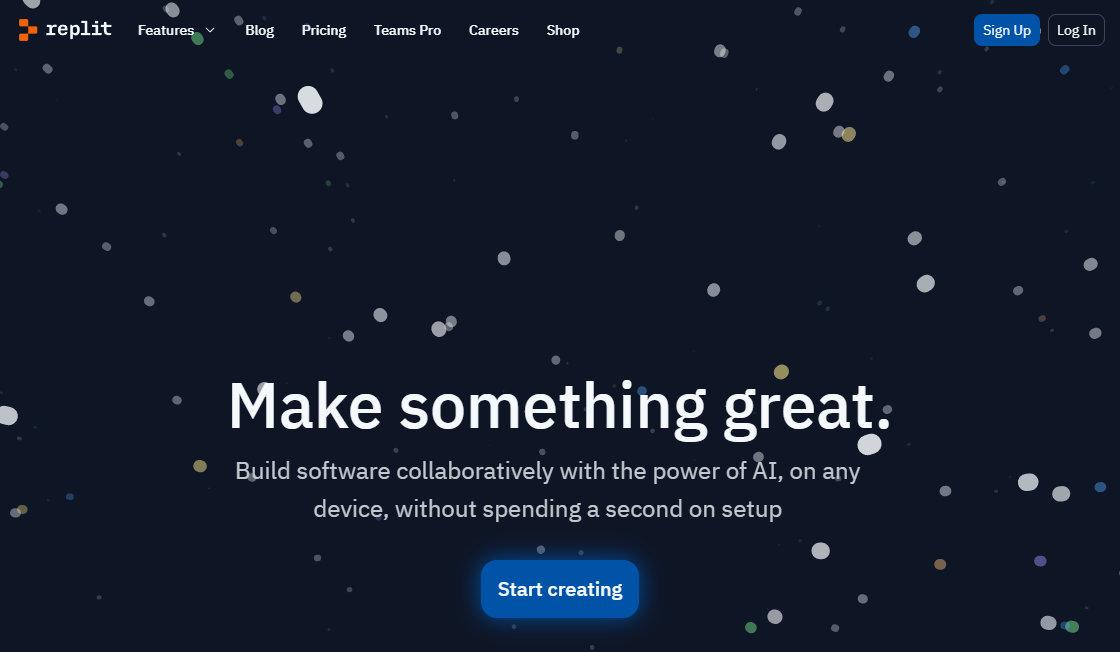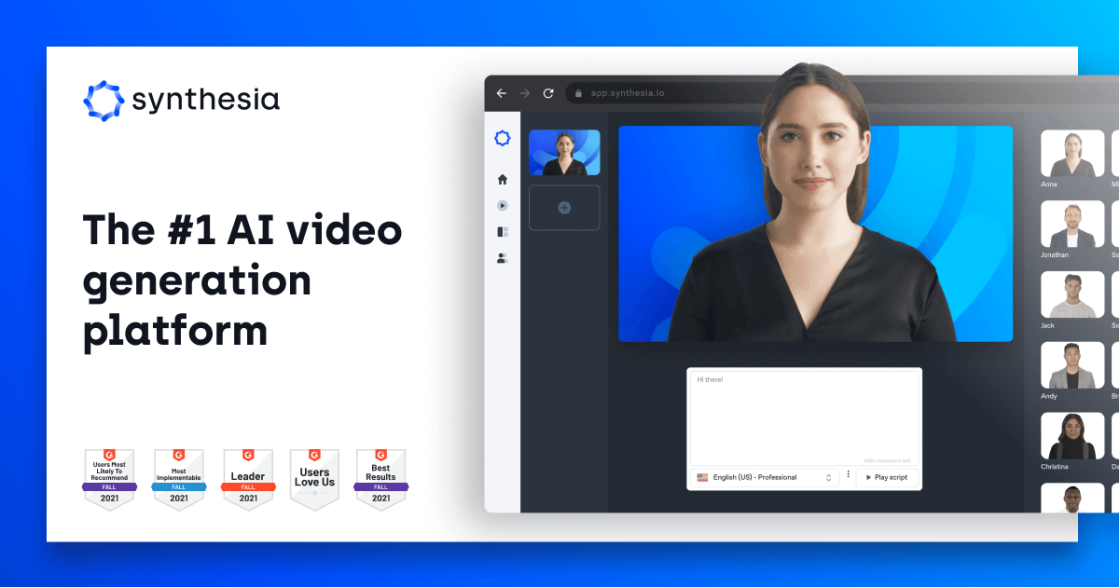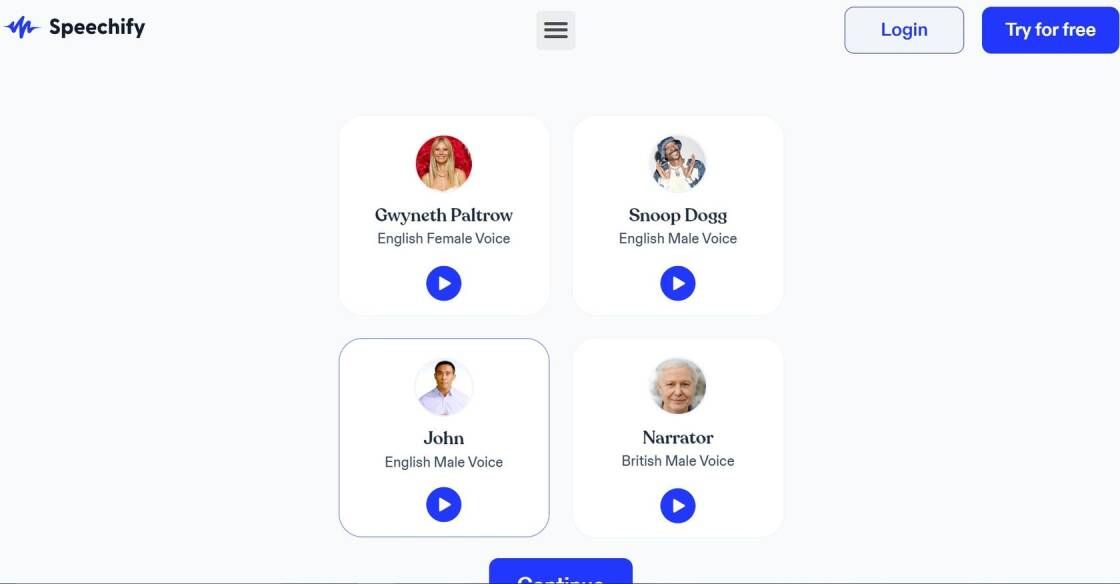

NaturalReader Online is a cloud-based text-to-speech service that offers natural voices in 23 different languages. It is an efficient tool for those who want to convert written text into speech, making it easier to comprehend and consume. The service is user-friendly, and the voices are lifelike, allowing for a pleasant listening experience. With NaturalReader Online, language barriers can be overcome, and communication can be made more accessible, making it an essential tool for students, professionals, and anyone who requires assistance with reading or comprehension.
Deepspeech is a state-of-the-art speech recognition platform that utilizes deep learning techniques to achieve high performance. It is a powerful tool that can transform speech into text, making it an essential tool for various applications in the fields of education, healthcare, and business. With its advanced technology and accuracy, Deepspeech has become increasingly popular in recent years, and its potential is still being explored. This platform has the ability to enhance communication and accessibility for individuals with speech impairments, as well as revolutionize the way we interact with technology.
HappyScribe is a cutting-edge transcription software that utilizes AI technology to convert audio and video files into text with unparalleled accuracy of up to 99.9%. The software simplifies the process of transcription, making it easier for professionals and businesses to generate accurate transcripts in a matter of minutes. With HappyScribe, users can easily extract valuable insights from their audio or video content without having to spend countless hours transcribing manually. It is no doubt that HappyScribe is revolutionizing the way we transcribe and analyze audio and video content.
Nuance PowerScribe is a groundbreaking speech recognition technology that has revolutionized the transcription process. It is designed to convert spoken words into text with unmatched accuracy, thanks to its intelligent optimization. With Nuance PowerScribe, healthcare providers can easily transcribe and document patient information, improving workflow efficiency and reducing errors. This innovative technology has become an essential tool in the healthcare industry, enabling professionals to focus on what matters most - delivering quality care to patients.
Sensory TrulyHandsfree Voice Control is a revolutionary embedded speech recognition technology that aims to provide high accuracy and low power consumption. It is a cutting-edge technology that allows users to control their devices using voice commands without the need for any physical interaction. With its advanced features, it has become a popular choice among manufacturers who want to offer a seamless and hassle-free user experience to their customers. This technology is efficient and reliable, making it an excellent choice for a wide range of applications, including smartphones, wearables, and home automation systems.
Voicegain Speech-to-Text is an innovative and advanced solution for achieving accurate and reliable speech-to-text conversion in real-time streaming audio. With its cutting-edge technology, Voicegain offers an unparalleled level of accuracy and speed, making it an ideal choice for businesses and organizations looking to improve their audio transcription capabilities. This powerful tool is designed to help users easily convert spoken words into text, allowing them to better understand and analyze audio content. Whether you're a broadcaster, content creator, or business professional, Voicegain Speech-to-Text is the perfect solution for all your audio transcription needs.

Box
Cloud Content Management Platform

YouChat
AI Chatbot Builder

Repl.it
Replit: the collaborative browser based IDE - Replit

Jasper
AI-Powered Customer Support

Synthesia
Synthesia | #1 AI Video Generation Platform

Speechify
Best Free Text To Speech Voice Reader | Speechify

Date Night Short Film
AI Generated Script: How We Made a Movie With AI | Built In

Palette.fm
AI Generated Music for Your Projects
CereProc Text-to-Speech is a cloud-based service that offers a cutting-edge text-to-speech system that creates lifelike voices in multiple languages. It is a highly innovative system that has revolutionized the way we interact with technology, by enabling machines to communicate in a more natural and human-like manner. The service makes use of advanced algorithms and machine learning techniques to generate synthetic speech that is indistinguishable from human speech.
The CereProc Text-to-Speech system has several applications across different domains, including education, entertainment, and healthcare. For instance, it can be used to create voiceovers for e-learning modules, audiobooks, or even video games. It can also be used to develop speech-enabled virtual assistants and chatbots that can converse with users in multiple languages seamlessly. The system's ability to generate high-quality synthetic speech has also made it a valuable tool in the medical industry, where it is used to develop assistive technology for people with speech impairments.
Overall, the CereProc Text-to-Speech system is a game-changer in the world of artificial intelligence and has already garnered widespread adoption across different industries. Its ability to create lifelike voices in multiple languages has opened up new possibilities in the way we interact with technology, making it more accessible, engaging, and user-friendly.
CereProc Text-to-Speech is a cloud-based service that converts text into lifelike speech in multiple languages.
CereProc uses advanced algorithms to analyze and synthesize natural-sounding voices based on the input text.
CereProc supports over 30 languages, including English, Spanish, French, German, Mandarin, and Arabic.
Yes, you can customize the voice's pitch, speed, accent, and other parameters to suit your preferences or application requirements.
Yes, CereProc offers commercial licenses for businesses and organizations that need high-quality and reliable text-to-speech services.
No, CereProc Text-to-Speech is a cloud-based service that can be accessed from any device with an internet connection and a compatible browser.
CereProc uses state-of-the-art technology to produce highly accurate and natural-sounding speech that is comparable to human speech.
CereProc offers various pricing plans based on usage volume, customization options, and other factors. Contact their sales team for more information.
Yes, CereProc Text-to-Speech can be useful for people with visual impairments, dyslexia, or other conditions that affect reading and writing.
CereProc Text-to-Speech can be used in various industries, such as education, healthcare, entertainment, customer service, and accessibility, to name a few.
| Competitor | Description | Difference |
|---|---|---|
| Amazon Polly | Amazon Polly is a text-to-speech service that uses advanced deep learning technologies to synthesize speech that sounds like a human voice. It supports multiple languages and offers various lifelike voices. | Amazon Polly offers more languages than CereProc. It also has more natural-sounding voices, thanks to its advanced deep learning technologies. |
| Google Cloud TTS | Google Cloud Text-to-Speech is a service that enables developers to generate natural-sounding speech from text. It supports multiple languages and voices and can be accessed through REST API or client libraries. | Google Cloud TTS offers more languages and voices than CereProc. It also has a wider range of customization options for adjusting speech speed, pitch, and volume. |
| IBM Watson TTS | IBM Watson Text-to-Speech is a cloud-based service that converts written text into natural-sounding audio in a variety of languages and voices. It uses deep learning technologies to produce lifelike speech. | IBM Watson TTS offers more languages and voices than CereProc. It also has advanced customization options for controlling prosody, intonation, and emphasis. Additionally, it offers real-time streaming capabilities for generating speech on the fly. |
| Microsoft Azure | Microsoft Azure Text-to-Speech is a service that can synthesize natural-sounding speech from text in multiple languages and voices. It offers a REST API and SDKs for integrating with various platforms and applications. | Microsoft Azure offers more languages and voices than CereProc. It also has a wider range of customization options for adjusting speech speed, pitch, and volume. Additionally, it offers real-time streaming capabilities for generating speech on the fly. |
| Speechmatics | Speechmatics is a cloud-based automatic speech recognition (ASR) and speech-to-text service that can transcribe speech in multiple languages and accents. It also offers a text-to-speech service for generating synthetic speech from text. | Speechmatics offers a wider range of language options than CereProc for both ASR and TTS services. Its TTS service also features more natural-sounding voices and a wider range of customization options for adjusting speech speed, pitch, and volume. Additionally, it offers real-time streaming capabilities for generating speech on the fly. |
CereProc Text-to-Speech is a cloud-based service that enables users to create lifelike voices in multiple languages. It is a powerful tool for those who want to make their content accessible to people with visual impairments, learning disabilities, and other conditions that make it difficult to read. Here are some things you should know about CereProc Text-to-Speech:
1. How it Works: CereProc Text-to-Speech uses advanced algorithms and natural language processing to create lifelike voices. The software analyzes the text, breaks it down into phonemes, and then generates speech using a database of pre-recorded audio files.
2. Multiple Languages: CereProc Text-to-Speech supports over 70 languages, including English, Spanish, French, German, Chinese, Japanese, and many more. This means that you can create audio content in multiple languages without having to hire voice actors or translators.
3. Customizable Voices: With CereProc Text-to-Speech, you can create custom voices that suit your needs. You can adjust the pitch, speed, and tone of the voice to make it sound more natural and engaging.
4. High-Quality Audio: CereProc Text-to-Speech produces high-quality audio that sounds natural and is easy to understand. This is important for people who rely on audio content to access information.
5. Accessibility Features: CereProc Text-to-Speech is designed to be accessible to people with disabilities. It supports screen readers, braille displays, and other assistive technologies, making it easier for people with visual impairments to access your content.
6. Use Cases: CereProc Text-to-Speech can be used in a variety of contexts, including e-learning, audiobooks, podcasts, and voice assistants. It is also useful for businesses that want to create audio content for their websites, apps, and marketing materials.
In conclusion, CereProc Text-to-Speech is a powerful tool for creating lifelike voices in multiple languages. It is easy to use, customizable, and produces high-quality audio that is accessible to people with disabilities. Whether you are creating e-learning courses, audiobooks, or marketing materials, CereProc Text-to-Speech can help you reach a wider audience and make your content more engaging.
TOP